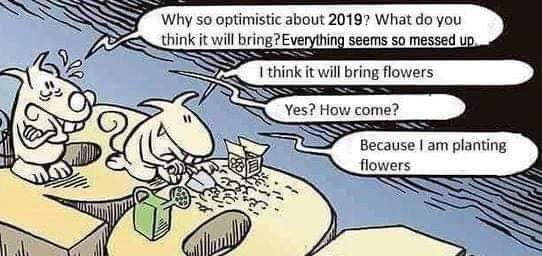5 Primal Truths – and 5 Power-Tips!
Here are some observations in January 2021 from 30 years of professional service in emotional and mental health to help you help others get another perspective.

We are, I’m told, in an international health crisis. All around us we hear the agonising groans of caring people staring at what seems to be an unrecognisable world, and fearful of what might happen next. How many more people will die? What about my mum/dad/aunt/ill or older friend?
Well, for me there are some Primal Principles that will never move, and we will be wise to examine them closer and adjust our thinking, to embrace them and welcome them into our current situation. Not all of them are particularly attractive in some ways, but turning away from the foundational facts of life makes matters worse. Often much worse. Facing them honestly and openly brings about a different quality of day to day life, for ourselves and those around us. It also frees us up to think more clearly about where we ourselves actually are in this ‘health crisis’, so we can make decisions that will really make a difference to the mental and emotional health of those we love and serve.
So, without more ado, let’s take a look at some principles that will liberate us, as individuals, as communities, and as members of the human race. Think about them and maybe share them/discuss them with your friends. You may have others, but here are five of mine that are often overlooked:
1. Taboos trap us.
There are those around us who do not want to be honest about life. They are intimidated when others speak openly, and feel as if they are losing control when people say things that are hard for them to hear, or cut across a treasured viewpoint. So the subject is quickly designated as a ‘taboo’, not to be spoken of or discussed. Such people, in their desperation to avoid the emotional pain associated with honesty, pressurise into silence those who speak up, and in so doing lock the very Emergency Exits each of us needs in a time of crisis. Human beings need to express thoughts, fears, hopes and worries. We are designed that way, and slamming that exit shut results in more, though often less obvious, casualties, and increases the damage.
2. The universe is bigger than we are.
How often we talk of ‘conquering’ – conquering space, conquering cancer, and even attempting to ‘conquer’ death! Frightened of not being in control we spend our millions doing our best to ‘win’: win the battle against disease, win the battle against climate change, win the battle against poverty, and do whatever it takes to avoid the frightening prospect of running out of food, water, energy, etc. But the Universe IS bigger than we are. Take a look! There will always be another pandemic or global crisis coming down the line, and nothing will stop it. If we allow ourselves to explore the possibility of a coming unwanted event, we will be better prepared. Sometimes seemingly ‘bad’ things can turn out to be potentially ‘good’ things.
3. Death is part of life.
Death, perceived as the final frontier for many, stares at us more directly as we get older, and people defy it, pretending that our mortal bodies can somehow put on immortality if we do the right thing soon enough. Young or old, all of us are going to die, and (unless we take things into our own hands) none of us knows when. But imagine for a moment what the world would actually be like without anyone physically dying or living to the age of 300 years old. What a mess! It doesn’t bear thinking about. No, death is a potential friend to mankind, not the ultimate enemy. Of course we are motivated to create and preserve life, but there is also something liberating about accepting our humanity. We all will die. Endings are important. Embracing death as a natural reality is essential to mental health.
4. Pain is important.
None of us likes to see people suffer, however both emotional and physical pain provide us with a measure of our engagement with the real world. Pain reminds us that human life is worth protecting, that feelings matter. Pain tells us that something needs attention, or that joy we’ve had is now missing. We can suppress the pain with medication, but that doesn’t put things right. Action is needed to do that.
Emotional pain highlights the extend of the love we see in the eyes of a bereaved partner, and on the face of the mum and dad who have ‘lost’ a child. (As C.S.Lewis put it: “If you love deeply you’re going to get hurt badly, but it’s still worth it.”) And of course, without UNhappy times we have no point of reference for what happiness is. Experiencing pain teaches us so much: patience, compassion, self-control, and courage. Without pain how shallow we would be! The inability to experience pain, as in leprosy or congenital analgesia, is a massive problem for the sufferers who injure themselves without realising it.
5. Freedom to express ourselves to others is a core essential.
Do what we will, squeeze people into however small a box, they will eventually burst out – or die. Isolation and loneliness are killers. Without individuals being free to express themselves to others – somehow, anyhow – means we won’t have those people for long. Their bodies may be alive, but strangle their ‘spiritual’ selves (the part that makes them truly human) and light of ‘who they are’ is extinguished. Our human bodies are constantly developing, re-creating and expressing themselves, and mental health is directly linked to the freedom to do that. Depriving people of the freedom to honestly connect and communicate is the emotional equivalent of physical starvation. (It is used as torture.)
I’m sure you’ll be able to think of similar Primal Truths that are overlooked by our comfort-seeking society.
So how are we going to help those going through tough times? How do we as ‘professional helpers’ better serve those we care about?
Five Power-Tips that help make the world better!
1. Be a living example.
The philosopher, humanitarian and physician Albert Schweitzer was awarded the Nobel Peace Prize in 1952. He famously said “Example is not the ‘best’ way to influence people. It’s the ONLY way.” And deep inside we know he was right. He went on to significantly change the health of the African continent in the early 20th Century. One man! So be a living example of someone who has accepted – and is putting into practice! – the above principles.
Don’t be intimidated by the taboos people seek to impose in times like these. Accept that the Power of Life within this planet is bigger than any of us. Accept the reality of human limits, particularly death and pain. Model the freedom to live, love, connect and communicate. Words are really important of course, but an example is more convincing. As Eliza Dolittle put it, “Words, words, words. I’m sick of words. Show me.”
2. Promote the value of living NOW.
Alongside the current epidemic, we have an epidemic of fear. Fear is always based around the uncertainties of the future. No one fears the past. But the future (as we’ve found out) is always going to be uncertain! We may try to make it risk-free and want to do everything to guarantee it to be ‘safe’, but no one can afford to issue or pay for such an all-encompassing insurance policy. What we CAN be sure of and enjoy is what we have NOW. Chasing a dream is all well and good for some and perhaps some of the time, but more often it is a flimsy unreachable and exploited fantasy. We don’t have the future. We absolutely DO have NOW.
3. Live thankfully.
What you focus on in life generally starts to appear bigger than it really is. Like looking through a microscope, the closer you look, the bigger it gets, the more it fills your vision, consumes your time and starts to direct your energy. So choose to look at the good stuff.
Deliberately choosing to focus on worthy, loving, kind, good, encouraging things as an habitual practice – even amid global thunderstorms of negativity – is the ultimate antidepressant. Consistently being thankful (having an Attitude of Gratitude) grows the parts of a human brain that increases the sense of wellbeing, and increases the production and uptake of brain chemicals such as dopamine, serotonin, oxytocin and endorphins. That’s good news indeed, and just what human bodies need in times of challenge. Literally count your blessings. Every day. And remember the proverb: ‘Comparisons are odious’. You’ll always find people better and worse off than you. Don’t compare, be thankful for what you do have.
4. Turn patients into doctors and nurses!
Each of us has exactly the same number of hours each day to be part of the answer not part of the problem. Our active positive contribution to others (as opposed to obsessing about our own weaknesses, needs, inabilities and frustrations) makes the world more the way we want it: Better!

It takes so little to change a person’s day. Compliments are magic. (Words.) Simple acts of kindness work wonders. (Actions!) Dream them up and actually DO them. Thoughtfulness towards others is at the heart of conventional politeness: the action of putting another’s feelings before your own. That doesn’t mean being hostage to their bad mood. It means giving consideration to their situation. Carefully chosen words change lives, so make sure your sincere words of en-COURAGE-ment are spoken to those who need them. (And to those who don’t appear to need them. Like you, they might just need them too.)
Help those who are understandably wallowing sadly ‘in bed’ in the hospital wards of life to catch the joy and reward of helping others get better, and catch the joy and reward of … you’ve got it … being part of the answer.
5. Promote ‘Criticism-free Zones’.
Criticism is a very easy option because it implies that we can do better than the person we’re criticising without us ever having to prove the point. It implies we are superior, that we know better. That we’re not as gullible, foolish, or ignorant as they. And of course we might be absolutely right! So how much better is the world after we’ve vented our criticism? Exactly. Criticism generally makes people bitter, not better. Give it a rest – at least for a while. Find a better alternative. (Try 1-4 above!)
Well, hopefully this little guide will provide at least a hint of dawning light (if not an instant midday sun!) to counter some of the darkness around us. And you’ll be joining me in the Grand Project of Living Well!
Andrew Sercombe
